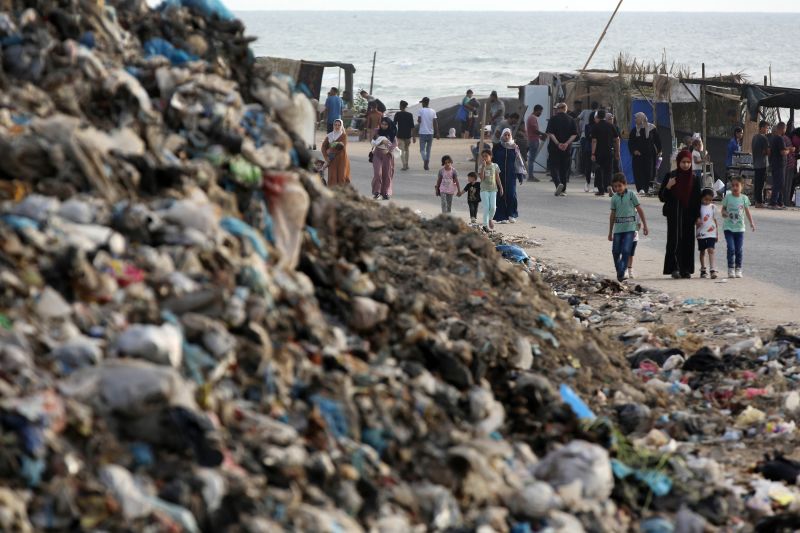
Gaza’s Health Crisis Escalates: Flies, Mosquitoes, and Mountains of Garbage Amplify the Peril!
The Gaza Strip, a small, densely populated sliver of land on the eastern coast of the Mediterranean Sea, faces a deepening health crisis. An alarming mix of flies, mosquitoes, raw sewage, and mountains of garbage is creating a hazardous environment, exacerbating the existing health crisis. With this toxic cocktail, the region faces the threat of worsening health conditions, escalating a dire situation into a catastrophic one.
In recent years, the region’s existing health problems have been further strained by prolonged conflict, restricted movement, and the devastated economy. These factors have resulted in a limited supply of clean water, insufficient waste disposal services, inadequate housing, and sparse medical facilities, creating ideal conditions for a public health disaster. The current proliferations of flies, mosquitoes, raw sewage, and garbage only worsen these conditions.
Flies and mosquitoes, common pests worldwide, are potential carriers of many diseases. Flies can carry over 100 different kinds of disease-causing germs, including cholera, typhoid, and salmonella, while mosquitoes are known vectors for viruses like dengue, zika, and malaria. In Gaza, cheers of these pests are abnormally high due to the piles of unattended garbage and stagnant water pools from untreated sewage, which serve as ideal breeding grounds.
The issue of raw sewage in Gaza is particularly worrisome. With the existing water treatment facilities severely damaged and no adequate replacements, a significant portion of untreated sewage is finding its way into the Mediterranean Sea. Beyond that, there are numerous instances of sewage overspills onto the streets and into residential areas. This not only presents an unpleasant sight and unbearable smell, but it is dangerous, carrying harmful bacteria and parasites that can cause illnesses like gastroenteritis, dysentery, and hepatitis A.
The mounds of garbage that plague Gaza’s streets exacerbate the crisis. With the suspension or limitation of municipal services due to financial constraints, waste management has been gravely affected. The unattended trash piles have become a haven for various disease-transmitting insects. Besides, the burning of garbage, a practice often used to reduce heap size, releases toxic fumes into the air, contributing to a variety of respiratory problems among Gaza’s residents.
The situation in Gaza is a testament to how environmental health risks can drastically compound a public health crisis. The presence of flies, mosquitoes, raw sewage, and garbage adds additional burdens to an already frail healthcare system. They are not merely inconveniences to the
